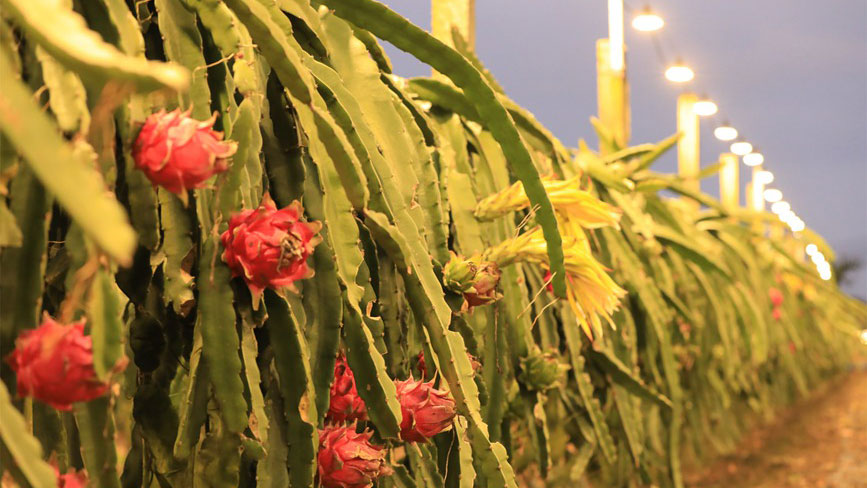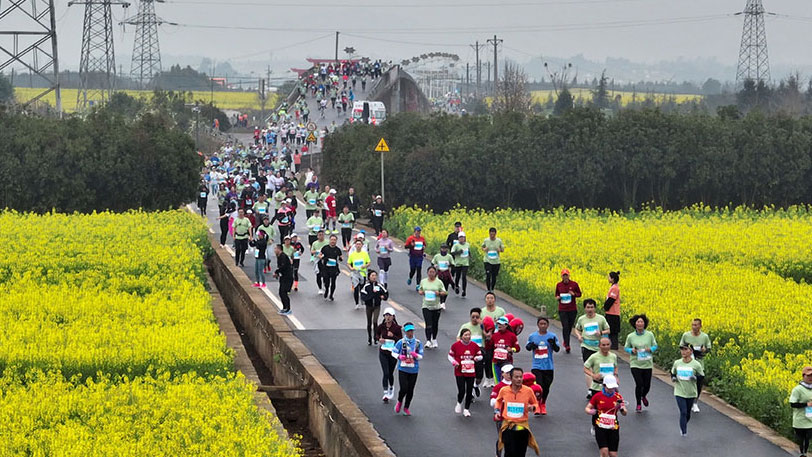NW China's entrepreneurs eye growing opportunities
LANZHOU, Feb. 28 (Xinhua) -- As soon as the snow stopped falling in northwest China's Gansu Province in mid-February, 44-year-old Geng Shengchen was impatient to fly to Zhejiang Province, one of the country's main production areas for fresh tea leaves and a "battlefield" for Chinese milk tea merchants.
"As the milk tea economy gradually recovers, there's been a rush on the buying of tea leaves recently," Geng said.
Geng is the founder of Fundosa, a milk tea brand in the city of Lanzhou, capital of Gansu, that has been well received among locals and tourists alike for its global flavors.
Geng noted that his milk tea products have special ingredients such as fermented glutinous rice and highland barley, which, he believes, represent the local traditional food culture. Other raw materials from all over the world can also be found in the company's milk tea, showing the brand's cultural fusion.
To serve his consumers high-quality products, Geng used to travel to various food markets across the country to look for the best ingredients. However, his frequent journeys were interrupted by the COVID-19 pandemic, and his decreased orders cast a shadow over his career ambitions to promote a creative drink culture.
As China has optimized its COVID-19 response in light of the evolving pandemic situation, Geng has not only regained confidence in his business, but he has seen more fierce competition in the sector.
The sales volume of Fundosa milk tea has returned to the same level as seen in 2019, and more franchised outlets are in the works and are expected to open this year, Geng said.
Chen Junzhang, 33, an entrepreneur from the Tianzhu Tibetan Autonomous County of Gansu Province, is also preparing for the upcoming peak season.
Chen is nostalgic about his hometown. After graduating, he returned to Tianzhu determined to sell local agricultural specialties such as white yak meat and fungus on e-commerce platforms.
"Something different happened this year," Chen said. He used to have to make great efforts to persuade consumers to buy his products, but this year, merchants across the country have flocked to him seeking cooperation.
Chen has received many cooperation proposals, but it is a project to develop white yak wool products that has most drawn his attention.
"Some international suppliers have cast their eyes on the rare wool, and I want to seize the opportunity to expand the market," Chen said.
During the weeklong Spring Festival holiday this year, the sales revenue of China's consumption-related sectors rose 12.2 percent from last year's figure for the same holiday period, data from the State Taxation Administration shows.
The vigorous consumption market is igniting the enthusiasm of more assertive entrepreneurs, including those who are still completing their education.
In the student start-up center at Lanzhou University, 53 out of 105 entrepreneur teams have launched businesses in the field of science and technology.
"Research teams at the university are transforming their academic achievements into practical uses, which will have promising prospects following the economic revival," said Deng Yubo, the general manager of a services company at the start-up center.
Photos
Related Stories
- China sees more young entrepreneurs
- Chinese entrepreneur using novel water purification solution to help Kenyans get access to safe drinking water
- Female entrepreneur makes Chinese-style steamed buns, inspires others to pursue prosperity
- Profile: Mexican entrepreneur in China's Chongqing
- China's control of COVID-19 boosts foreign entrepreneurs confidence
Copyright © 2023 People's Daily Online. All Rights Reserved.









